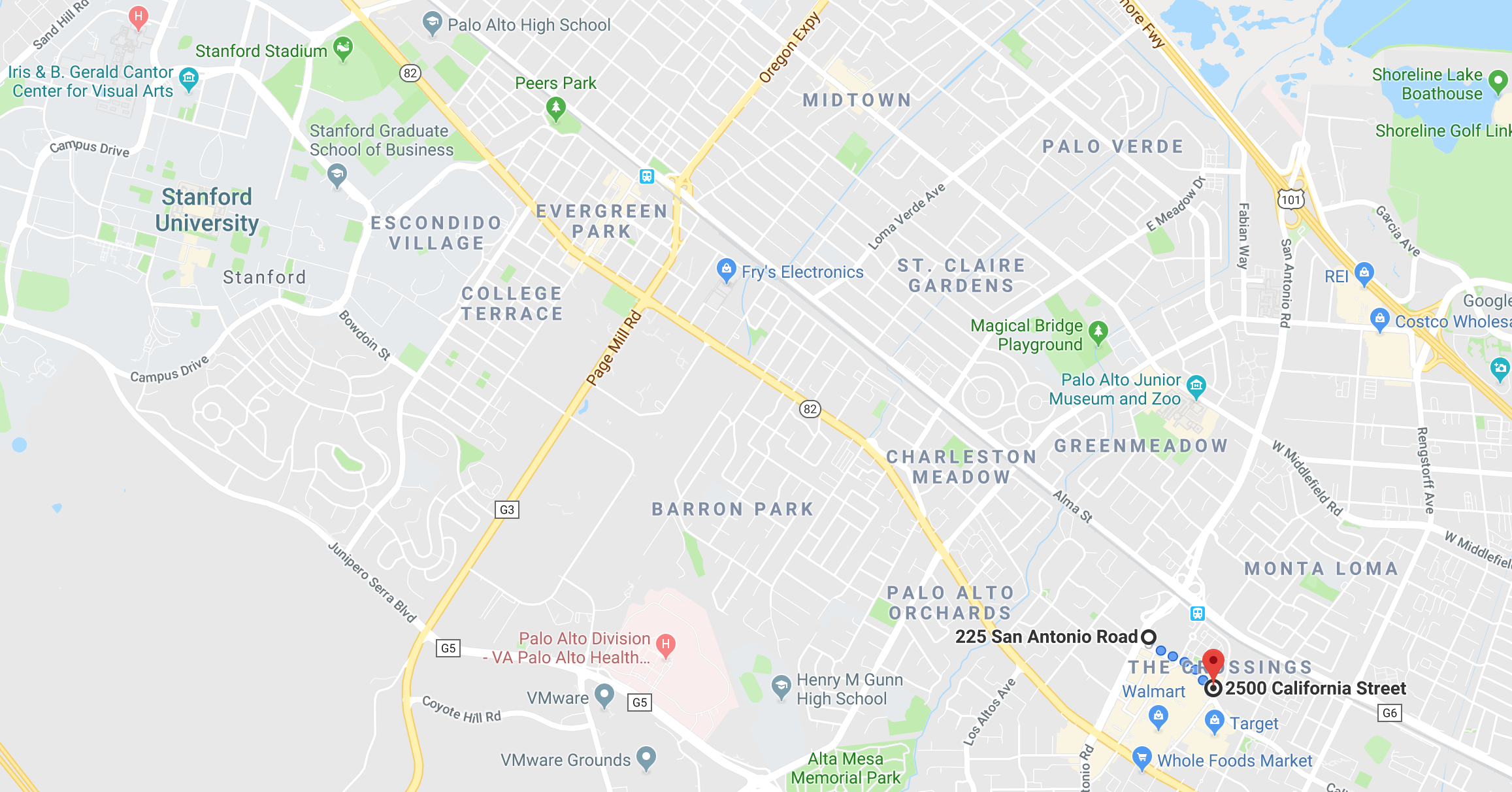After a two-year-long struggle to find a new location for Planned Parenthood’s Mountain View clinic, a partnership between the nonprofit and Santa Clara County is set to come to fruition in October, when the clinic relocates from 225 San Antonio Rd. to 2500 California St. and begins serving the community with additional services supported by the county.
Planned Parenthood is widely known for providing reproductive healthcare services, but its Mountain View branch is also the primary healthcare provider for many low-income families in Santa Clara County. According to a statement by the Santa Clara County Board, 2,131 members of the county’s Valley Health Plan rely on the Planned Parenthood Mountain View clinic for primary healthcare, and 70% of the clinic’s patients earn below 138% of the federal poverty level.
When the Mountain View clinic was notified in early 2017 of possible eviction due to major redevelopment plans, county officials pushed for a partnership with Planned Parenthood to preserve the clinic’s role in the community.
“If Planned Parenthood has a problem, we have a problem,” said Santa Clara County Board President Joe Simitian at the time. “The Fifth Supervisorial District (which includes cities in the North County and West Valley), is the only Supervisor’s district without a county health clinic. That means that we rely on a network of community health clinics and non-profits like Planned Parenthood to provide these essential services.”
In June, Simitian announced a collaboration with Planned Parenthood wherein around 1,300 square feet of the new clinic will be allotted to the county to provide additional healthcare services. The county plans to task the Santa Clara Valley Medical Center with providing a variety of specialized healthcare services complementary to those offered by Planned Parenthood.
Simitian noted that these services are likely to include “a specialty pediatric dental clinic, along with flex space to house specialty services to support the needs of Planned Parenthood patients, which could include cardiology, orthopedics, and urology, or others.”
Adhering to Simitian’s promise of offering “complementary, rather than duplicative services,” the county has spent the last several years working alongside Planned Parenthood to pinpoint specific healthcare needs of low-income families in the community — and in turn, to develop services that will fulfill those gaps.
“Having dental services for women and children in particular is something that Planned Parenthood felt would really be a value added for their operation in Mountain View,” Simitian told The Daily. “We will continue to explore other specialty services, and we’ve talked about everything from dermatology to mental health, but the other services that might be provided have not yet been determined.”
The relocated clinic is expected to open its doors around the end of October, Simitian said, pending approval for a range of governmental permits. In the meantime, developer Greystar has extended the lease at the clinic’s current location to help the clinic remain in continuous operation during the transition between locations.
The Mountain View Planned Parenthood clinic has long served the Stanford community, acting as both an accessible and affordable alternative for students seeking birth control, sexually transmitted infection (STI) testing, intrauterine device (IUD) implants, and nonsurgical abortions — a service otherwise not available on campus. Many Stanford students who consult with Planned Parenthood in high school decide to continue their relationship with the organization in college, according to Margot Bellon ’21, co-president of Stanford’s Planned Parenthood Generation Action chapter.
Stanford students are generally well-equipped with healthcare options on campus; the student healthcare center and Stanford hospital are mere minutes away. Outside of the student community, though, the opening of the clinic might serve a different population on campus that can’t access those same benefits.
“Having that Planned Parenthood can sometimes be the only form of healthcare some of these low income patients are receiving,” Bellon said. “So for a lot of Stanford dining staff or cleaning staff, that may be their main source of care.”
Though it’s unclear which Stanford population the clinic will impact most, the clinic’s expanded services will cater to the entire community, Bellon said.
“I think concentrating them in one place makes the services more readily available,” Bellon said. “When these patients go to Planned Parenthood and they see these other services, they’ll know about it and be more inclined to refer a friend.”
While the discussion on what particular services the county and clinic will offer at the new clinic continues, Simitian expects plans to further develop within the coming year. Rape kits could be a priority item for the clinic to consider adding, according to Bellon, as they are an important resource unavailable at Stanford. But regardless of the services offered, Bellon said spreading awareness of the clinic is key.
“I hope that the word will get out,” she said. “And that people start using [the clinic], because I think one of the biggest problems is that Stanford students are not even aware that there exists this clinic in Mountain View.”
In fact, the Mountain View clinic is the only one located between Redwood City and San Jose. Simitian said the clinic’s “continued existence was of immense importance” to his constituents.
“It’s more challenging than people might think to partner with other agencies or organizations, but we can do so much more for the community if we find a way for government to partner with community based nonprofits like [Planned Parenthood],” he added. “There’s just a world of good we can do if we make that effort.”
Contact Anna Chiang at annac777 ‘at’ gmail.com.
